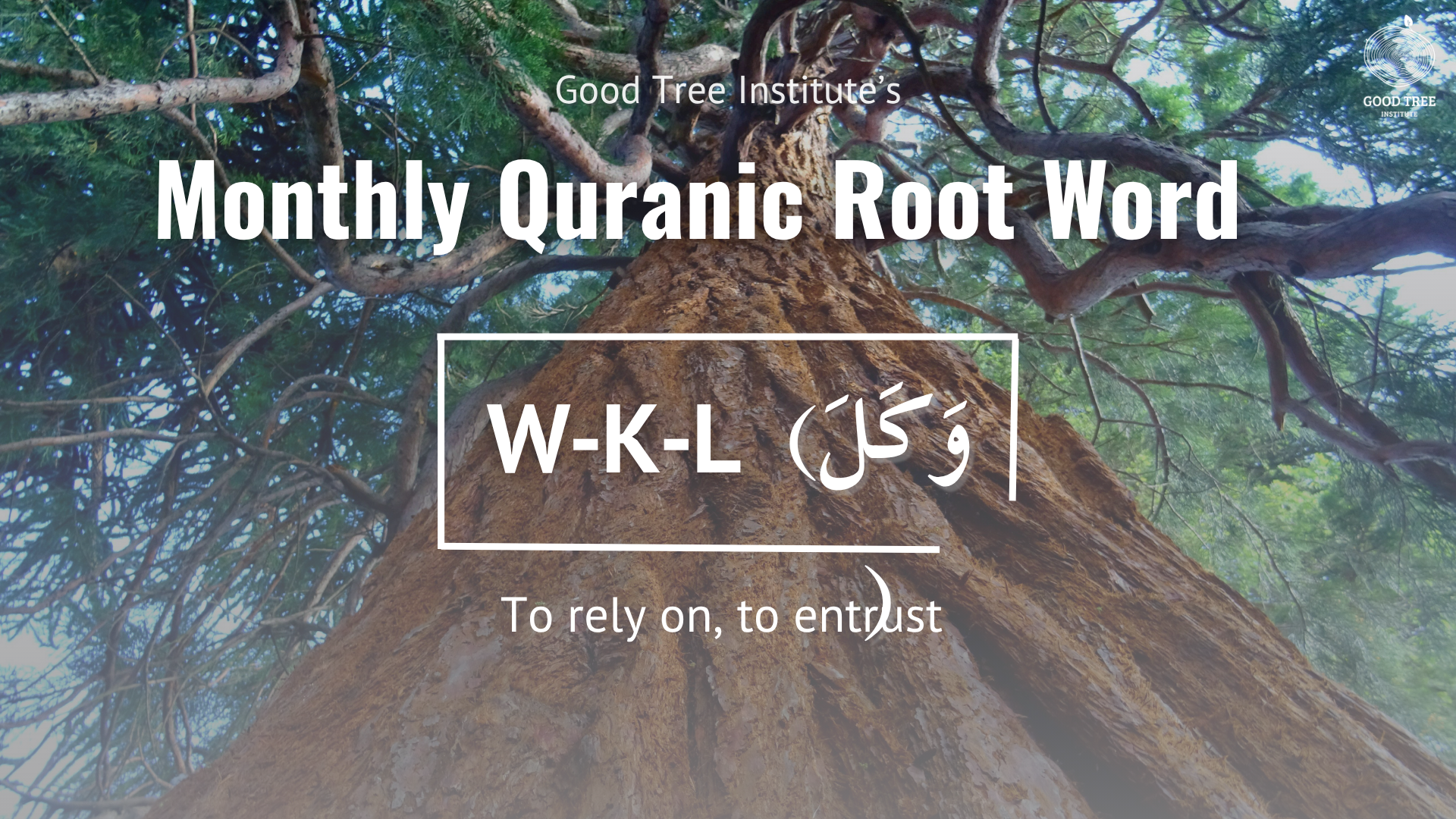What Does It Really Mean to Rely on Allah? The Root Word W-K-L in the Quran
When we hear the phrase “rely on Allah” (tawakkul ‘ala Allah), many of us imagine sitting back and waiting for things to happen. But in reality, the Quranic concept of tawakkul is far deeper—and far more empowering. To understand it, we need to look at the Arabic root word W-K-L (وَكَلَ).
The Meaning of W-K-L
The triliteral root W-K-L carries the meaning of entrusting, relying upon, or placing responsibility with someone trustworthy. From this root comes the beautiful Divine Name of Allah: Al-Wakīl (ٱلْوَكِيلُ)—the Ultimate Trustee, the One we can rely on completely.
When you say tawakkul, you are not saying, “I give up, Allah will take care of it.” You are saying, “I do my part to the best of my ability, and then I hand the outcome over to Allah, knowing He will manage it perfectly.”
Tawakkul Is Not Passivity
One of the biggest misconceptions about reliance on Allah is that it means doing nothing and waiting for results. But the Prophet ﷺ taught us the opposite. When a man asked if he should tie his camel or just trust Allah, the Prophet ﷺ said:
“Tie your camel, and then rely on Allah.”
(Sunan al-Tirmidhi 2517)
This hadith captures the essence of tawakkul. We act responsibly, plan wisely, and take initiative—but we don’t carry the crushing weight of control over what happens. We trust that Allah, Al-Wakīl, will handle what’s beyond us.
Why W-K-L Matters in Our Lives
Understanding the root W-K-L gives us a new perspective on everyday struggles:
• In career decisions: We put in effort, apply, prepare, and then entrust the results to Allah.
• In family life: We care, advise, and nurture, while knowing Allah ultimately guides hearts.
• In times of fear or uncertainty: We take precautions but remember Allah is the Best Protector.
This shift lifts anxiety off our shoulders. Reliance on Allah is an active balance of striving + surrendering—doing our best without obsessing over the outcome.
Quranic Verses on Tawakkul
The Quran repeatedly emphasizes reliance on Allah, often tying it to strength and success:
• “And whoever relies upon Allah—then He is sufficient for him.” (Quran 65:3)
• “…And upon Allah let the believers rely.” (Quran 3:122)
• “Indeed, Allah loves those who rely upon Him.” (Quran 3:159)
These verses remind us that true tawakkul isn’t weakness—it’s a source of empowerment, peace, and divine love.
Learning the Quran Through Its Roots
The example of W-K-L shows how a single Arabic root can unlock profound insights into the Quran. When we understand the language Allah chose, our connection to His words deepens beyond translation.
That’s why Good Tree Institute created Roots of the Quran I, a self-paced 8-week course designed to help you master the top 100 root words of the Quran. With guidance from Dr. Nadia Katrangi—an expert with 20+ years of teaching experience—you’ll uncover the richness behind words like tawakkul, sabr, rahma, and more. Learning these roots isn’t just academic—it’s transformational. It helps you live with greater trust, patience, and awareness of Allah’s presence in your daily life.
👉 Ready to strengthen your connection to the Quran? Preview the first course session for free and begin your journey toward a deeper understanding of the Quran.
🔗 Learn more about Roots of the Quran I: www.goodtreeinstitute.com/roots
Enhance Your Learning With Roots Of The Quran Flash Cards I
To complement your study, pair the course with our Roots of the Quran Flash Cards. These cards are designed to reinforce your learning, helping you connect more deeply with the Quran’s language and wisdom.



